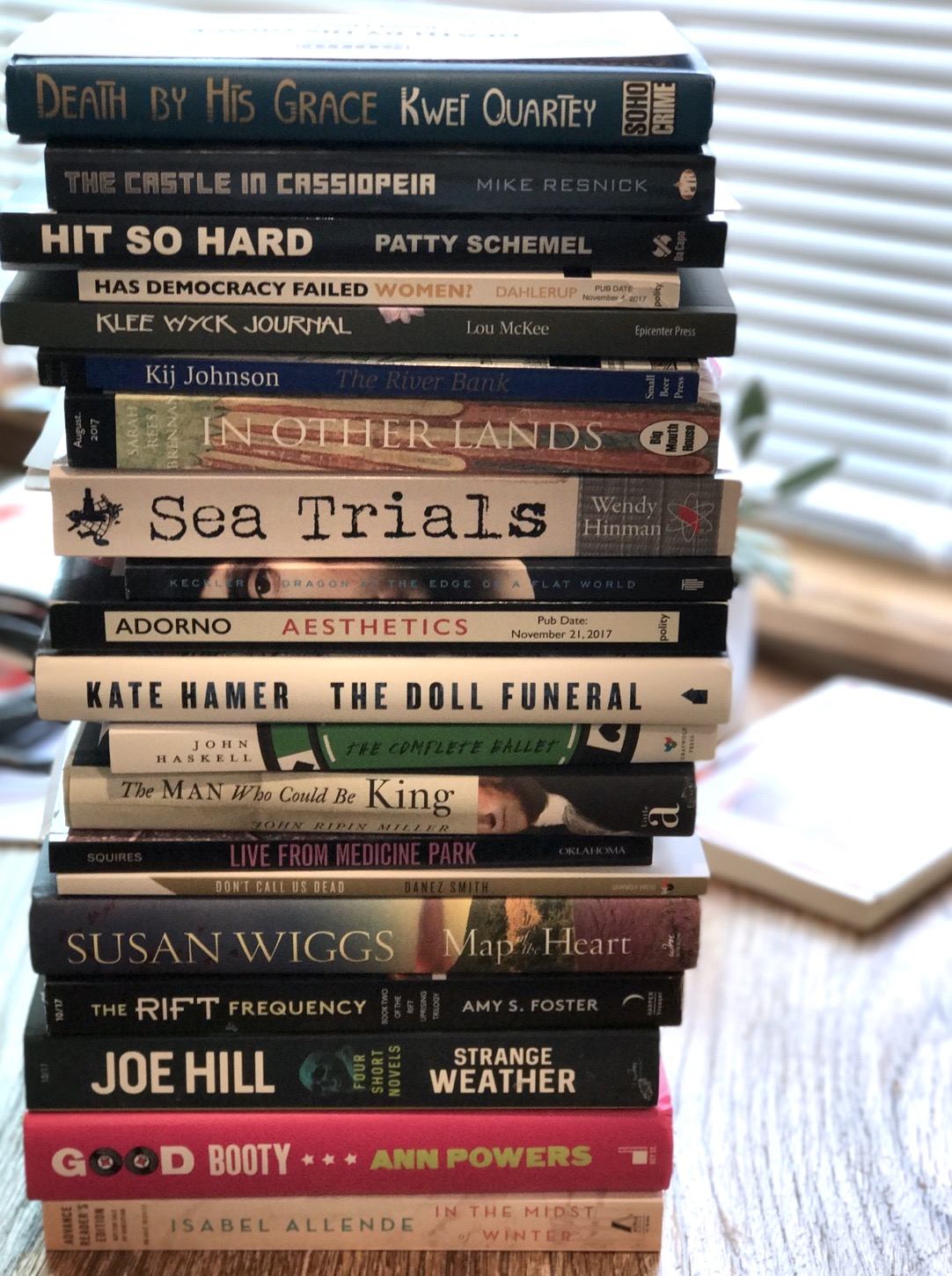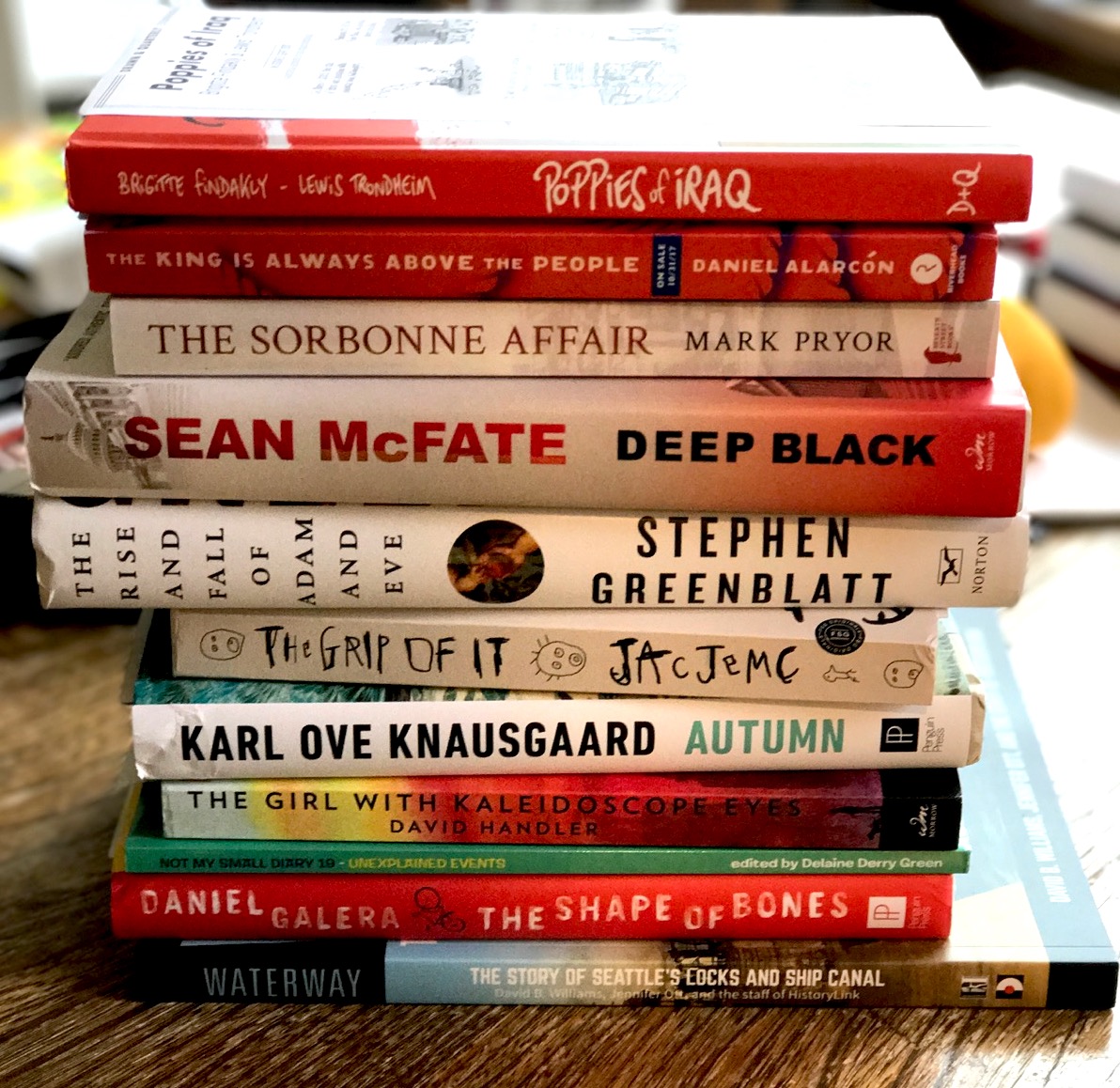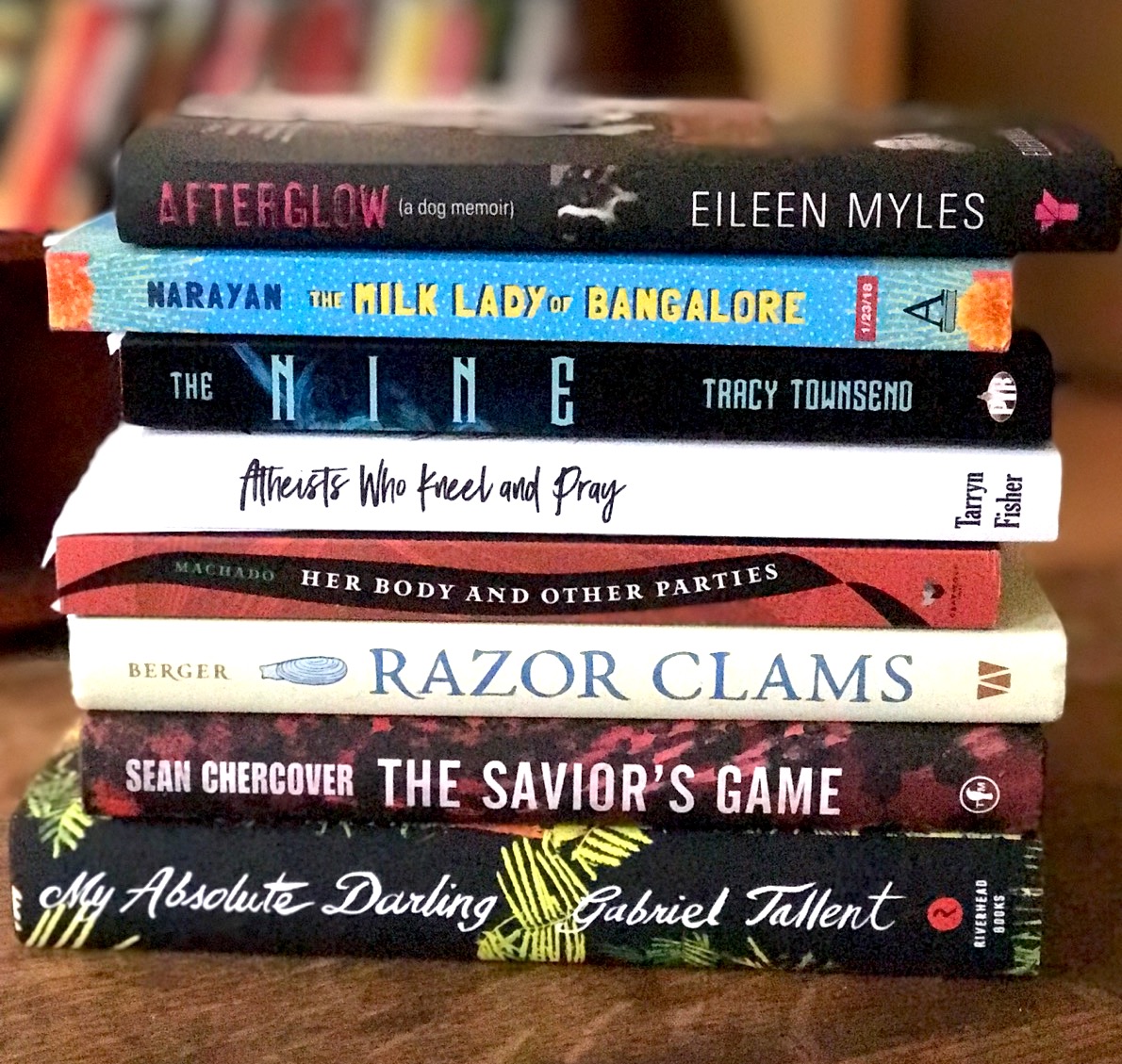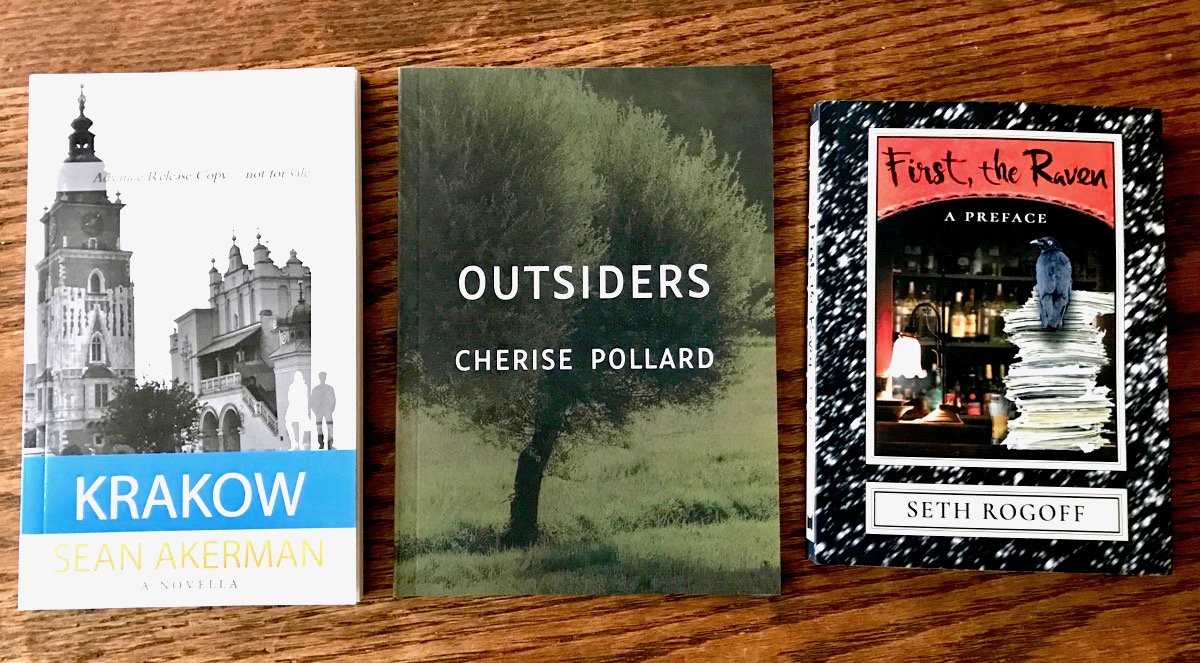Translation is not kale
Published August 10, 2017, at 11:00am
Why aren't more books by women translated and available in English? Anca Szilágyi takes the hot air out of publishing industry excuses.
Thursday Comics Hangover: Scary stories to tell in the dark
You've gotta love a comics anthology built on a theme. There's something so conversational and warm and inquisitive about collections of short comics, particularly when they're all examining a particular idea from a wide variety of perspectives.
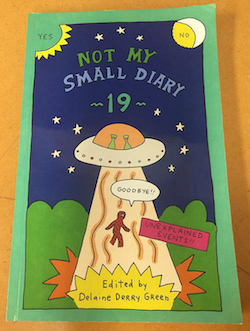
The 19th issue of Not My Small Diary — part of the My Small mini-empire created by Delaine Derry Green (the zine creator known best for her long-running series My Small Diary) — is an anthology of 43 autobiographical comics about unexplained events. As you might expect, the stories range from the outright supernatural (lots of ghost sightings) to the merely coincidental (immediately after having a dream about a mugger stealing $20 from them, a cartoonist is handed $20 by some random guy on the street.)
This particular issue of Not My Small Diary is loaded full of Seattle cartoonists including Noel Franklin, David Lasky, Kelly Froh, Donna Barr, Max Clotfelter, Colleen Frakes, Mark Campos, Ben Horak, and Roberta Gregory. It's with more than a little pride that I note that Seattle contributes some of the strongest pieces in the book, including Franklin's creepy crow story, Campos's short tale of the six words you'd least like to hear from thin air in the dead of night, and Frakes's account of the time she accidentally entered into a family's haunted living situation.
Ranging in tone from skepticism to avid believer, these comics combine to form a wide-ranging study of experiences and feelings about paranormal activities. It's kind of like a long sleepless night swapping stories around the campfire. Some of the stories are total bullshit; others feel a little too true for comfort. No matter where you stand on UFOs and ghost stories, you'll find something to appreciate here.
Your Week in Readings: The best literary events from August 9th - August 15th
Wednesday August 9th: The Grip of It Reading
Jac Jemc is one of the finest young(ish) visiting writers who read at the APRIL Festival. Tonight, she celebrates the release of her latest novel, a haunted house story with the exceptional title The Grip of It, with APRIL co-founder and Seattle author Tara Atkinson. Expect creepy fun and literary excellence. Elliott Bay Book Company, 1521 10th Ave, 624-6600, http://elliottbaybook.com . Free. All ages. 7 p.m.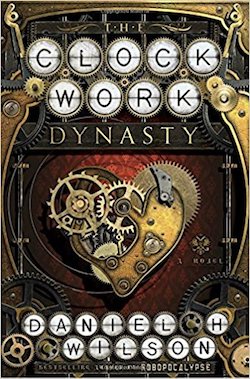
Thursday August 10th: The Clockwork Dynasty Reading
Daniel H. Wilson’s novels about the robot uprising of the future, Robopocalypse and Robogenesis are two modern classics in the geeky sci-fi canon. His latest book, The Clockwork Dynasty, looks instead to the past, unveiling a secret society of robots who have changed the course of human history. Elliott Bay Book Company, 1521 10th Ave, 624-6600, http://elliottbaybook.com . Free. All ages. 7 p.m.Friday August 11th: Earth as It Is Reading
In the new novel by Jan Maher, a young woman in the 1930s walks in on her husband as he’s trying on her lingerie. She leaves him. He leaves Texas behind to move to Chicago and finds a cross-dressing subculture. Will he be able to come to terms with his secret life? University Book Store, 4326 University Way N.E., 634-3400, http://www2.bookstore.washington.edu/. Free. All ages. 7 p.m.Saturday, August 12th: Casino: A Palimpsest
See our Event of the Week column for more details. Frye Art Museum. 704 Terry Ave., 622-9250, http://fryemuseum.org. Free. All ages. 11 a.m.Sunday August 13th: Secrets of the Weird Reading
Author Chad Stroup’s latest urban fantasy takes place on the streets of a town called Sweetsville, where a drug called Sweet Candy makes wishes come true. What do neo-Nazis and unlicensed surgeons and cults have to do with it? Look, you’ll have to read the damn book to find out.University Book Store, 4326 University Way N.E., 634-3400, http://www2.bookstore.washington.edu/. Free. All ages. 7 p.m.
Monday August 14th: New People Reading
Danzy Senna is one of the very most interesting social writers the 21st century has yet to produce. Her long-awaited new novel, New People, is about a biracial couple who find themselves divided along lines that they don’t fully comprehend. Senna explodes American conceptions of class and race in ways that will make readers completely uncomfortable. Elliott Bay Book Company, 1521 10th Ave, 624-6600, http://elliottbaybook.com . Free. All ages. 7 p.m.Tuesday August 15th: Capitol Hill History
If you’re the kind of person who learns more by doing and seeing, you should take David Williams’s most recent book, Seattle Walks: Discovering History and Nature in the City out on a stroll. In a time of relentless growth, it’s important to remember what came before. Tonight, Williams will talk with two board members of the new Capitol Hill Historical Society. Elliott Bay Book Company, 1521 10th Ave, 624-6600, http://elliottbaybook.com . Free. All ages. 7 p.m.Unreal estate
Published August 09, 2017, at 11:41am
Tonight, Chicago novelist Jac Jemc reads at Elliott Bay Book Company. Her latest novel is a haunted house story that will keep you turning pages until you die from lack of sleep.
Literary Event of the Week: Casino: A Palimpsest
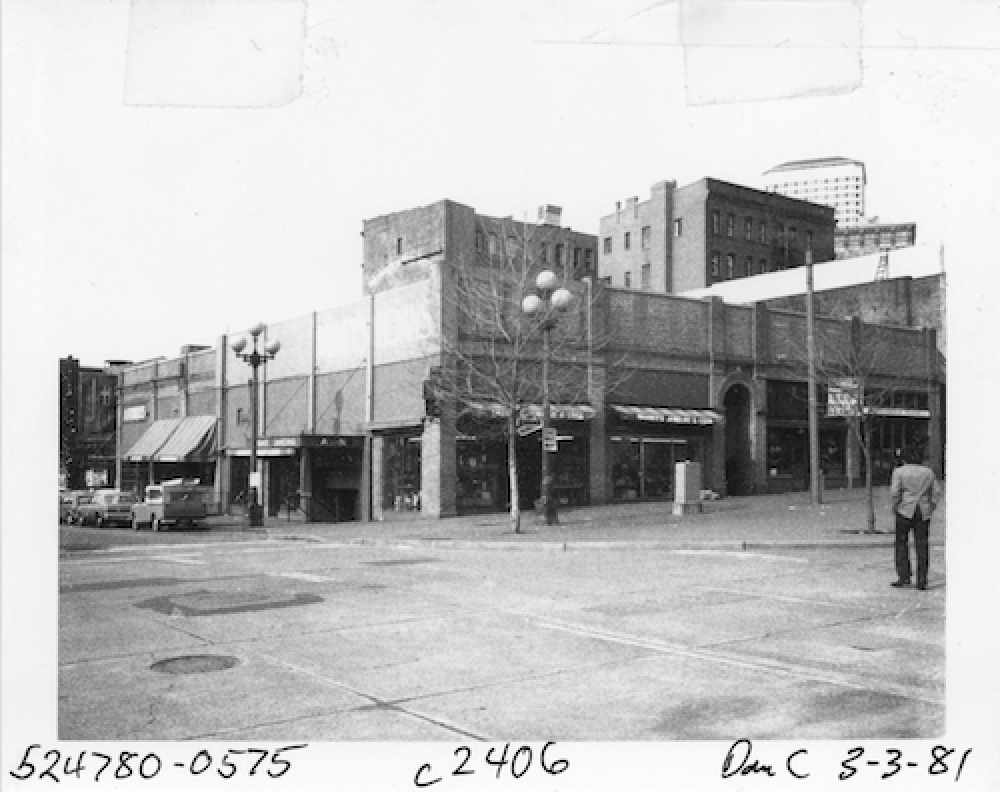
I’ve lost count of the number of times I’ve seen Storme Webber read at Seattle literary events. In person, she is an explosion: her poetry is a performance with real drama to it, and the prose is meticulously crafted, as though carved into stone. If you just scanned literary calendar listings, you could make the mistake of believing Webber to be just another poet, endlessly anthologized in group readings around town.
But Webber has another side that you might not see if you only attend readings. Her poetry can’t be constrained to just the page or the stage. Webber is interested in pitting history against the present in complex ways, in giving voice to the people who have been steamrolled by the bureaucrats who approve the history books, in examining the way that stories get repeated and forgotten and intentionally erased.
In recent years, Webber has combined performance with prose and visual art in an experimental site-specific project called Noirish Lesbiana, an attempt to bring light to the forgotten lesbian culture in and around Pioneer Square in the 1960s. “The focus is on my lesbian-headed family of mixblood Alutiiq Natives, and the communities, struggles and strengths that shaped their lives,” Webber writes on her website. “I am the storyteller, the second generation Black Alutiiq Two Spirit daughterartist.”
This month, Webber unveils what might be her most ambitious project to date. At the Frye Art Museum, she’s headlining a show — her first work in a museum — titled Casino: A Palimpsest. Casino continues with the work that Noirish Lesbiana began: it’s a history of one of the first gay bars on the west coast, the Casino.
In the early days of the city, Pioneer Square was where the freaks and outsiders went to be left alone, and the Casino — located near 2nd Avenue, where you’ll find Sounders fans twirling their scarves these days — was where they went to feel a sense of belonging. Webber’s own family found stability at the Casino. And the stories that played out in that space have never been told to enraptured tourists on the Underground Tour. Through photographs and performances and writing and workshops during the life of the show, Webber will use Casino to rewrite the erased history of the Casino.
But the title of the show is a warning: a palimpsest is a piece of writing that has been recorded on the place where another piece of writing has been erased. Random parts of the original show through, interacting with the newer manuscript in complex ways. Webber is not promising to revive the past, whole and undiluted. Those stories have been wiped out. The best she can do is tell the story as best she can, and hope that echoes of those lost stories make themselves known in her work. What’s past is gone; we can’t resurrect history, we can only hope to collaborate with it.
The Second Coming
Published August 08, 2017, at 12:16pm
In 2013, Richard Chiem published a short story collection that was ahead of its time. Time’s up.
Book News Roundup: Get ready for Seattle Public Library's new website
- By now, you've likely heard about some drama involving nerdy sci-fi festival GeekGirlCon. The best take on this was a long thread spotlighted by Ijeoma Oluo on Twitter:
If you want to know what is going on with @GeekGirlCon please read this ENTIRE thread. Social justice language being appropriated & abused. https://t.co/PF4ebiytAI
— Ijeoma Oluo (@IjeomaOluo) August 7, 2017
The second-best take is from Teresa Jusino at The Mary Sue, which has the headline "Former GeekGirlCon Volunteers Resign Over … 'Reverse Racism'?"
In case you missed it last night, the finalists for the Washington State Book Awards were announced. Winners will be...crowned? Do they get crowns?..on October 14th at the downtown library.
Speaking of the library, SPL unveiled a preview video showing their long-awaited website redesign, which looks pretty slick:
- What kind of an asshole sues LeVar Burton for encouraging literacy?
Costume
I guess it’s easy to want to be black,
when everything is the new black,shiny as LP spinning at 33 rpm
in the hipster owned record store
on the formerly black block
in the formerly black neighborhoodbut do you know what comes back
around for black? that needle scratch
leaves grooves
deep as the riverdon’t nobody want the old black —
people want the Jimi Hendrix black,
the psychedelic star spangled banner by your own rules blackthe sparkled glove, moonwalking, grammy winning black,
not the dark skin, big nose self hating blacknot the Jim Crow black, segregation black,
poll tax payin, separate but equal black,the happy smile shuffling tap dance black,
not the minstrel show, burnt cork black-face black,
not the yessir boss black,not the whistle at a white girl
and end up cautionary tale blackwhen black folks all around you fought
to gain a piece of the real estate
that’s been redlined
and sold off
and sold off
and sold off for centurieswhen the folks that lay claim
to its legacy got that shit on layaway,
but don’t ever get to put more than a bit
of change down each month
and interest rates ain’t no joke
cuz don’t nothing changethen I guess being black
is like putting on a pair of snow pants
to brace against the cold when
you’re already fully dressedand you just love your accessories,
been sliding on kimonos and dashikis
and headdresses and dreadlocks
for Halloween and theme partieslike characters
you can switch in and out of
like accents,like a downpour
of a stormexcept you get to decide
when it’s time to come in
and take shelter out of the rain
Seattle Public Library announced the finalists for this year's Washington State Book Awards. The list is very long, but some noteworthy finalists include:
In fiction, Lovecraft Country by Matt Ruff and a reissue of Stories of Your Life and Others by Bellevue author Ted Chiang, which includes the story that was the basis for the great sci-fi film Arrival.
In poetry, Hardly War by Don Mee Choi and Blood Song by Michael Schmeltzer.
In biography, Shrill: Notes from a Loud Woman by Lindy West.
In non-fiction While the City Slept: A Love Lost to Violence and a Young Man's Descent into Madness by Eli Sanders.
Go read the whole list. The winners will be announced on Saturday, October 14th at the downtown library.
A refugee on two continents: from Sydney to Seattle
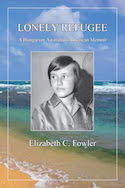
This week's glimpse between the covers of an upcoming book is courtesy of sponsor and local author Elizabeth C. Fowler. Fowler grew up in Australia as a Hungarian refugee, then immigrated to Seattle with her family, facing the challenge of discrimination on one continent and integration on the other. How she got from there to here — and grew from a lonely young girl into a talented physician with a passionate love for music and nature — is a story worth reading. And you can do just that, or at least get a taste; she's generously provided a full chapter of her memoir, Lonely Refugee, just for Seattle Review of Books readers.
Sponsors like Elizabeth Fowler make the Seattle Review of Books possible. Did you know you could sponsor us, as well? There are only two slots remaining in 2017, so move quickly to get your stories, or novel, or event in front of our passionate audience. Take a glance at our sponsorship information page for dates and details.
"We really are one of the top literary cities of the world." What to expect from this year's Seattle Urban Book Expo.
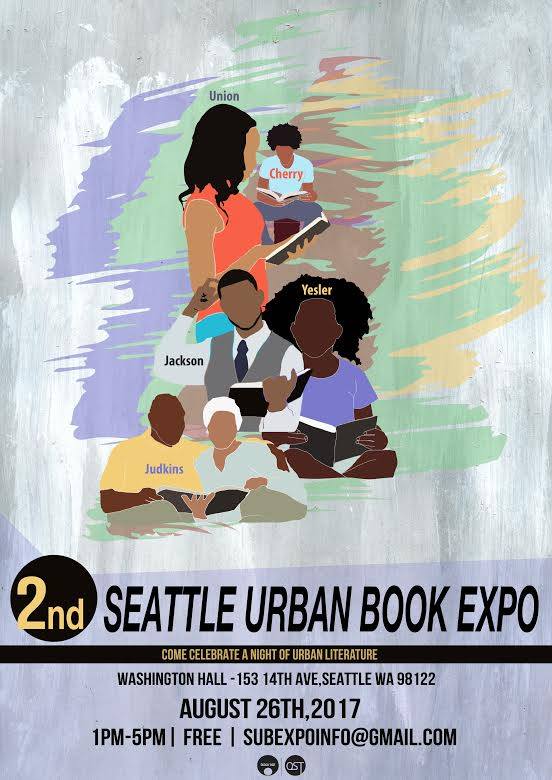
This morning, we interviewed J.L. Cheatham II about how he decided to be an author. The second half of this interview covers how he decided to launch the Seattle Urban Book Expo, and explains what people can expect from the second Seattle Urban Book Expo, which takes place on August 26th at Washington Hall.
So you just decided to throw a book expo without having any idea how to do that kind of thing.
It was kind of like an “if you build it, they will come” thing. So I connected with some people and got the space, and got everything going.
It turned out it was way more successful than I ever imagined. We had a total of eight authors including myself, a total of 250 people showed up to a space whose max capacity is 100. So there was this constant flow of activity. Everybody was having a good time with books, and I was like, "oh okay. We really are one of the top literary cities of the world. All right, cool."
Then the feedback afterwards was so humbling because everybody was like, “when's the next one?”
And now you’re having another one, on August 26th. Is it in the same spot?
No, it's at Washington Hall. It's from 1 to 5 pm. It's gonna be a party. That's the goal, I want a literary party.
Washington Hall is a great venue.
I love it. The staff is so…I feel like they're family now. I literally just pop up on them. I won't even announce myself, I just go over, knock on the door, they open the door for me, I'll just chill out, drink coffee, play dominoes, whatever. They've been great to me, everybody involved.
So, what can people expect this time?
Like I said, the goal is to have a literary party.
We've got 20 authors, we're gonna have four food vendors so people will have plenty to eat.
One of the things I noticed at the last one was people brought their kids, and I had nothing for kids. So this year I'm gonna have something called Juice and Paint, where there's a room in Washington Hall where kids go in and color, draw, write stories, and paint as the adults circulate the room and buy books and stuff like that.
Also, I have a face-painter too —that's gonna be outside near the food court. Well, I'm calling it the food court. It's really the parking lot, but I'm gonna turn it into an outdoor food court.
We’re gonna have music. I'm trying to keep people there. I want people to show up and stay for a bit. Nothing really starts a conversation than what type of literature you're into — especially when there's food and drinks involved. So that's the goal. Everybody can have a good time.
How did you get more than double the authors in two years? Did they come to you, or did you reach out to them?
I’m very heavy on social media. I promote everything all the time. Everybody was recommending this one because I think people remember [last year’s expo]. I was posting videos and pictures ot it and really highlighting how good of a time it was.
So I think people don't want to miss out on this one, because most likely, I'm only going to do this once a year. If you miss this one, you got to wait a whole other year for the next one to come.
Who are some of the writers that you think our readers should keep an eye out for this time? I know you love them all.
I love them all, but if I have to be selective, NyRee Ausler. She's doing a series called Retribution. I call it a romantic thriller. It really grabbed you from the first chapter.
Okay.
Also, Sharon Blake. I love her stories. She has a book called The Thought Detox. She has a very troubled past and she overcame it.
Who else? Key Porter does her comic book series called Shifters. Another author who I'm interested in meeting for the first time is Omari Amili. I love his background. I just love stories by people who triumph over hard times and they don't let their situations define them, you know what I mean?
And you’re doing an event at the library just before this?
Yep. So the week of the Expo, August 23rd, we're having an author Q&A at the Seattle Public Library, the central branch in downtown Seattle. I'm going to be hosting and we're going to have three authors show up, NyRee Ausler, Zachary Driver, and also a representative for Seattle Escribe named Kenneth Martinez.
We're pretty much going to open ourselves up for questions for people who are in attendance. This is really like an open house for people to know what the Seattle Book Expo is.
I feel like this is my coming-out party. A lot of people know like we're trying to create an institution, and to create a culture of cultivating these promising authors here who feel like they don't have an outlet to express themselves.
We also have another Q&A event with the King County Library at Renton Library. That's on the 25th, at 3:00 pm. We have five authors that are going to be there: Freddy McClain, Key Porter, Raseedah Roberson, Omari Amili, and Natasha Rivers. It will be kind of the same structure: talking about their experiences as writers, reading a few passages from their books. I want to give the opportunity for people to get to know the authors because on the day of the expo, it will be pleasant madness.
I love that, “pleasant madness.” Did the first expo work for you? Do you feel like you're getting your work out there now?
Yeah, I really do. After the expo, all this stuff started happening. The book signings in Barnes and Noble, the work I do with Amazon, all this other stuff. Also, one thing that's weird, but pleasantly weird, is that people are calling me and asking me questions like I'm some kind of expert, seeking my advice.
You mean like publishing questions?
Yeah, like, "Hey man, how'd you do this? When'd you do that?" I'm giving my input but I'm also like, "What? Wait a minute. When did I become an expert?" I was just struggling literally a year and a half ago but now they treat me like I'm some kind of self-publishing whiz or something. I say it jokingly, but it's humbling. I'm always willing to share my information as I go along with this journey. I’m still not a finished product myself, you know? There's still a lot of things I've got to learn too.
Seattle's a pretty segregated town in a lot of ways, and that’s also true of the literary community. Is there anything that you think this city can do better to bring more writers of color into the conversation? It's great that you're doing the Expo, but there are names that I've never heard of before. They're local authors and this is kind of like my thing and I should know them and I don't. Do you have any thoughts about how to bring everybody together a little more?
We all want an opportunity. We just want a chance to show our work. I think if Seattle works hard to create an opportunity for authors of color to want to showcase their work, then you'll start seeing a bigger number of them.
I think Seattle could do a better job with creating opportunities for authors of color to showcase their work and also act like that they care. There's definitely a voice in my community, and the Latino community, and the Asian community, and Native American/Polynesian community who are writers. They have something to say but they need an opportunity for people to listen. That's why I'm very happy with the partnerships that have come from this because everyone that I've met with actually genuinely cares about our voices.
We just need to cultivate this bubbling artistic atmosphere that's going on here in Seattle, you know?
Hugo House officially donates the ZAPP zine library to Seattle Public Library
Almost half a year ago, we told you that Hugo House was preparing to donate the 30,000 or so zines that made up the core library of the Zine Archive and Publishing Project (ZAPP) to the Seattle Public Library (SPL). I also interviewed ZAPP staff about their issues with the move.
There's been a lot of silence over the last few months, but now it's official: in a press release dated August 2nd, SPL announced that the collection has officially changed hands and they're now in possession of the ZAPP collection.
Andrew Harbison, assistant director for Collection & Access Services for The Seattle Public Library, said the Library is excited to acquire the collection and provide a permanent and secure home for it. "We recognize the value and cultural significance of this material, which documents an incredibly diverse range of voices, experiences, subjects and perspectives outside of traditional media channels," he said.
Librarian and former ZAPP volunteer Abby Bass added that the collection will support people who self-publish. "The collection is not only a really valuable documentation of our past, but an inspiration for Seattle writers, artists and self-publishers," she said.
The Library expects to receive the ZAPP collection in August. "Once we have the collection, we can begin an inventory and assessment of all the material," Harbison said. "After that work is done, which will take time, we will be able to determine how to make the collection available to the general public, researchers, self-publishers and others." Harbison anticipates material from the ZAPP collection to be featured in Library programs as early as this fall.
Abby Bass, in particular, serves as a kind of bridge between Hugo House and SPL: before she became an SPL librarian, she volunteered at ZAPP, so she can provide much-needed institutional knowledge for the project. We'll keep you posted on the zine collection status as it becomes incorporated into SPL.
"All the covers of the children's books, there were no black or brown faces." A conversation with J.L. Cheatham II
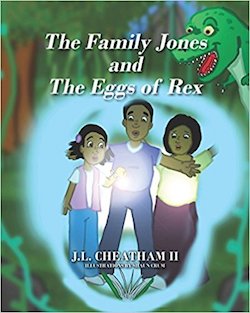
On August 26th at Washington Hall, author J.L. Cheatham II will host his second Seattle Urban Book Expo — a big party to promote Seattle's many authors of color. I sat down with Cheatham last week to talk about how he became a writer and what inspired him to start the Seattle Urban Book Expo. We've divided this interview into two halves: this first part covers how Cheatham came to be an author, and the second half deals directly with the Book Expo.
So to start, you could talk a little bit about how you became an author?
It literally started when I was about five years old and I watched professional wrestling for the first time. Ric Flair was fighting a guy who was being cheered by people and then I realized, "Hey, he's a bad guy, and the other guy's a good guy." And then my dad used to get me comic books: Spider-Man, Batman, and Archies. I was heavy into Archie. I’d read them at dinner — a fork in one hand and the other hand turning pages. It grew from there. I wanted to be a storyteller. The fact that we're able to create a world that's fictional and get anyone to believe it — that's a powerful ability.
Yeah.
In elementary school, I would create comic book stories for homework assignments. As I got older, I was pushed more towards sports. I didn’t find anything that would cultivate my passion for writing. There was a lot of sports in my neighborhood so I would play football, baseball, things like that. When I got to college, I was hurt so badly that I couldn't go to bed. I couldn't sleep because my ribs were throbbing.
Then when I was watching TV, my favorite movie came on: The Lion King. And then I felt that little joy again, the way I did when I was a kid when I'd write stories. Following that, it was some B-rated movie with that guy, Lorenzo Lamas? He was, like, the leader of a vampire-stripper cult.
I literally was talking to my girlfriend at the time like, "I could write this. If this made it to TV, I could do this.” So as soon as I made that decision, I began losing interest in playing sports. I didn't want to play football that much anymore.
Okay.
Then, I found out I was going to be a father and I decided that when my daughter sees me, she knows that her dad is pursuing his dream of being a writer. At first, I wanted to write movie scripts because after that whole Lorenzo Lamas movie, I thought I could do better. I wrote a couple of movie scripts, but I was having no luck whatsoever.
When my daughter turned four years old, she was into dinosaurs. She wanted a dinosaur book, so I was like, ‘Okay, cool. We'll go to the Barnes and Noble in Tukwila and look for a dinosaur book.’
When I got there and went to the kids section, I was looking around and something grabbed me: All the covers of the children's books, there were no black or brown faces. I looked at my daughter and I was like, "I'll write her a dinosaur book." And that's what my first book came from, The Family Jones and the Eggs of Rex. I literally had to learn how to write a book. I had to research story structure, manuscripts, self-publishing versus publishing.
I was scared to death. I didn't know what kind of world I was getting into. Copy-editors, proof-reading, theory. It took me a while, like five months, and then I wrote the manuscript, found a self-publishing company and found an illustrator.
I didn't know what was going to come. I didn't realize that I actually had to do some work. I thought you just published a book and it just magically flowed into people's homes, or stuff like that.
I was a bit discouraged because sales weren't going the way I wanted to, and I wasn't getting the attention I felt like I deserved. But then I asked myself, "Am I giving this a hundred percent?" Meaning, am I doing everything I can to promote my work? and I answered no. Then I asked myself, "Okay so how can you give this a hundred percent?" And I was like, "I have to go out and travel."
Literally a week later after I made that decision, I was approached by Stacey Robinson, who runs a book expo, in Toronto. And she invited me to come out there to market my book. Not only had I never been a part of an expo, I'd never been to Canada.
What was that like?
When I went out there, man, it blew my mind. Just the energy, the crowd, the music — everything. Literally when I got off the plane back to Seattle, all the energy just washed off me. My shoulders slumped and I was like, "aw man, what happened to all the festival feelings?”
I was like, "I need something like that for my city." Then when I started researching more, if there was a book expo, I couldn't find one. It was baffling to me that there'd never been an expo for black and brown writers. There's a lot of African-American culture in the city, so I was kind of shocked there had never been an actual book expo here.
So then I decided to do something like that.
The Sunday Post for August 6, 2017
Each week, the Sunday Post highlights a few articles good for slow consumption over a cup of coffee (or tea, if that's your pleasure). Settle in for a while; we saved you a seat. You can also look through the archives.
Beat the Clock
This essay by soccer player Georgia Cloepfill starts with what I believe is called a “devastating indictment” of the discrepancy in how male and female athletes are treated, financially and otherwise; that section alone is worth your time. And then she offers more, handfuls of short, lyrical-in-a-good-way vignettes about the nature of work, sacrifice, and achievement, through the lens of a woman who’s dedicated a great deal of heart to her sport.
I ask the clock how much time is left. It answers in monotonous pulses: there is still time, there is still time; or: it is nearly over. The amount of time that passes is inseparable from the immensity of my panic — they are one and the same.
With a comfortable lead, ninety minutes have the texture of a single day. Things happen with a calm inevitability. Events are as stable as a sunset, and consequences are modest. There is still time to erase, if necessary; to repeat, if you’ve already done the right thing; to find glory, if glory has thus far proved elusive.
Academic language and the problem of meaninglessness
At its worst obscure, self-righteous, and exclusionary, academic language is such an easy target! And yet I can’t help cheering Nathan J. Robinson on as he takes aim and fires at it again. In fairness (to the language), his point is that academic writing isn’t inherently bad, it’s just used that way.
if people are actually trying to communicate with one another their words need to have meaning, and we need to have relatively fixed and identifiable definitions for concepts and actions. That’s always going to be elusive, because the usages of words will change over time and vary among users, so it will be impossible for any definition to stay truly stable and universally agreed. Yet while their boundaries can be fuzzy and contested, words ultimately need to be something more than meaningless mouth-noises.
Being rich wrecks your soul. We used to know that.
If we’re going to face off against inflated language (see above), why not go head-to-head with inflated pocketbooks as well? If Spidey has to check his virtue, even more so Batman.
According to many philosophies and faiths, wealth should serve only as a steppingstone to some further good and is always fraught with moral danger. We all used to recognize this; it was a commonplace. And this intuition, shared by various cultures across history, stands on firm empirical ground.
Over the past few years, a pile of studies from the behavioral sciences has appeared, and they all say, more or less, “Being rich is really bad for you.”
The ISBN, decoded
Bonus for book nerds! Adrian Tahourdin reports out of London on how to decode the ISBN, and on the sea change its adoption signaled in what we know about the books we read. The article is a bit of an amuse-bouche, so here are a couple of trails to follow, based on Tahourin’s references: Philip Bradley on the ISBN’s history and use, and David Whitaker (“the father of the ISBN”) on the classification system’s birth.
One senior editor at the time would spend half his working hours proof-reading the item; I think he quite enjoyed it. He must have known many of the ISBN prefixes by heart: 0 19 for Oxford, 0 521 for Cambridge, the somehow pleasing 0 224 for Jonathan Cape, and the equally pleasing 0 393 for Norton and 0 674 for Harvard. Another editor at the TLS used to like being tested on ISBN prefixes, but she recalls that particular challenge now with some (understandable) embarrassment. She’s probably not even aware that Cambridge University Press a few years ago changed their prefix from 521 to 107.
Seattle Writing Prompts: The Church Doors
Seattle Writing Prompts are intended to spark ideas for your writing, based on locations and stories of Seattle. Write something inspired by a prompt? Send it to us! We're looking to publish writing sparked by prompts.
Also, how are we doing? Are writing prompts useful to you? Could we be doing better? Reach out if you have ideas or feedback. We'd love to hear.
We interrupt this writing prompts to call your attention to:
We're running a short story contest based on Seattle Writing Prompts, judged by Matt Ruff! Come and join the party, we can't wait to read your stories.
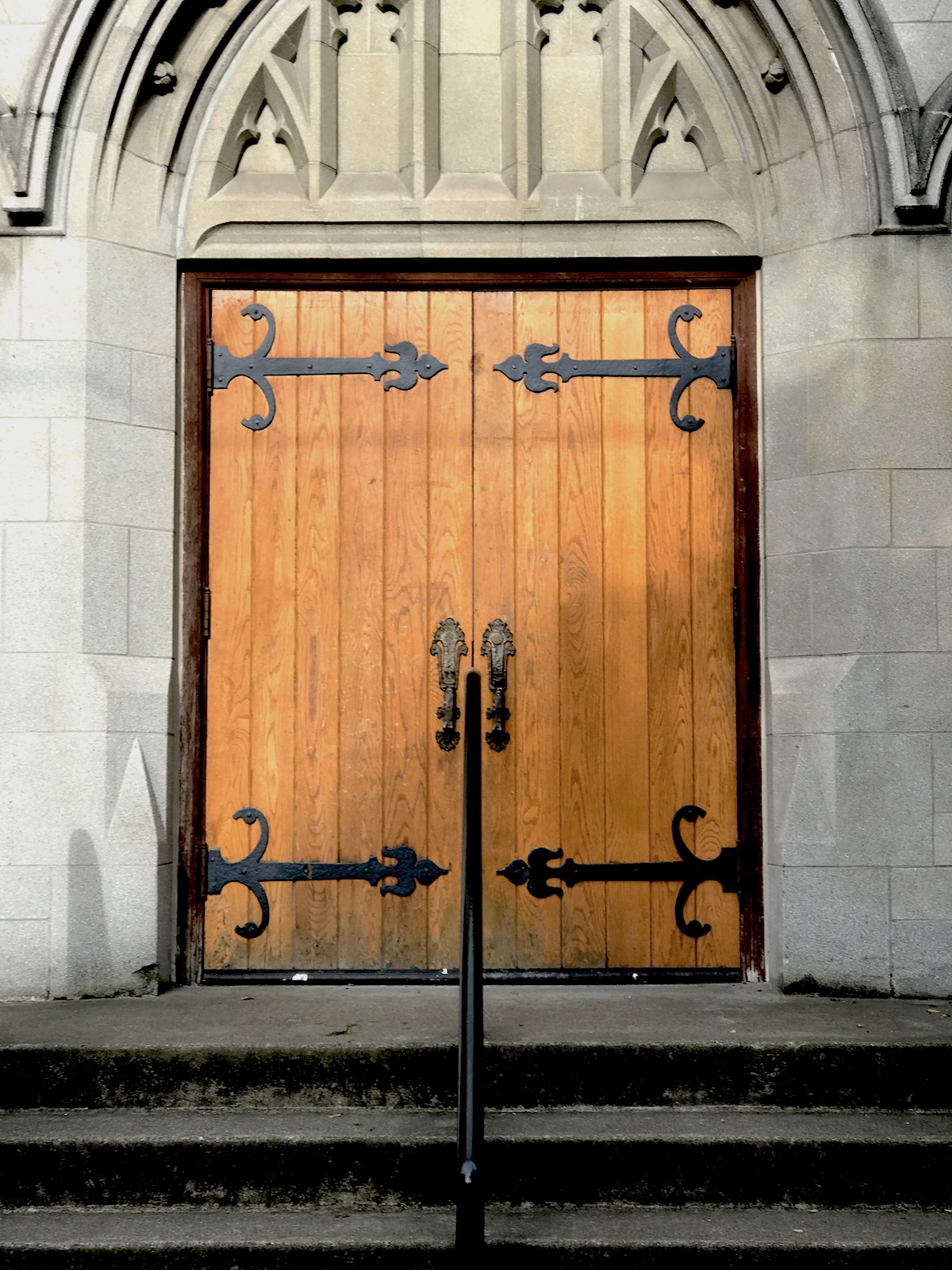
Portals are important. Transition spaces from one place to another: from outside, to inside; from a public space into a private space; from the room where you clean yourself to the one where you dress yourself. Every door, of course, is a transition, and we do love doors in our culture, don't we? We love big modern glass doors, and thick wooden plank doors. We love revolving doors and automatic sliding doors.
Let's say you work in a skyscraper downtown. First, you leave your home. If you live in a condo or apartment, you may pass through two or three doors to do this. Then you, perhaps, walk to the bus stop where you pass through the front doorway onto a bus, tapping your card or paying your fare. You leave the bus, maybe through the back doorway, and enter your office building, walk across the lobby, perhaps through the open doors into the coffee shop. You walk through the elevator doors on one level, and through others on your destination level. Then, finally, through the doors into the office. Anywhere from four to eight transitions every morning, but how often do we think about any of them?
Some cities are better for doors than others. For strange and mostly modern doors, San Francisco never fails to delight. For grand doors, some that take your breath away, London delivers. New York, of course, has millions of doors, and the ones that face the street from the tall buildings are all unique.
But no buildings quite do doors like churches. They are structures that take transitions seriously, because if you are a religious person, moving from the outside world to the inside world means moving from the profane into the sacred.
My father was a minister, and I can still remember the doors on the church I grew up in. Mid-century modern, almost. Very tall and broad, made of blond lacquered wood with small round glass insets and large, straight wooden handles, separated from the bulk of the door by round dowels. Something about building a church or cathedral calls for bespoke doors of great measure. Think about the history you're up against! The Florence Bapistry, say, or when you're already inside, Holy Doors (or Royal Doors). Why, just look at this random Pinterest page of church doors.
So, it seemed to me — someone who spends very little time in churches anymore — that thinking about the kinds of life events that happen when you cross these thresholds might make for some good writing prompts. They certainly encapsulate the whole lifespan of a person.
Today's prompts
They considered her a miracle. Premature by nearly a month, almost falling to a lung infection. They carried her, still less than five pounds, through the church doors where they would stand to have her baptized. Sometimes the ritual of showing up was important. Sometimes the ritual of being witnessed by a community was important. Sometimes you don't know if you will be able to make it through until tomorrow.
She was twelve. What she heard from the pulpit was a message against people like her. Against the secret she held, the self she hadn't confessed to any. And she wondered, what would happen when she was confirmed. Would there be some kind of retribution? Would that God they talk about strike her down as she stood there, in her white dress, asking to become part of a group who thought her bound for hell? Would she be struck down for walking through the doors into the church holding the thoughts she had?
She was thirty-five. The church doors were different, a new place. The hand she held walking through them, where lined up she saw all of their friends, and some of their family, cheering, belonged to her wife of all of ten minutes. A new beginning in a new place of acceptance.
She was thirty-eight. Now she carried the newborn, a plump and healthy ten-pound boy, through the doors. She thought of her own parents carrying her, and the stories they told of how they thought she might die but that she struggled, and she held her son closer with a promise that whatever was to come, they would face it openly and with love. What else could they offer him?
He was forty-four. She didn't want a service, really, but her friends refused to let her not have one. Services were for the living. So he carried her, parts of her in an urn, anyway. Back where there could be some stories shared and remembered, and where the last few painful years could be released. Tomorrow he'd fly home, after nearly four months by her side, caring for her. Now both of them were free, and that thought both weighed him down and freed him as he stepped across the portal into her church.
The Help Desk: Books to ward off demon-children
Every Friday, Cienna Madrid offers solutions to life’s most vexing literary problems. Do you need a book recommendation to send your worst cousin on her birthday? Is it okay to read erotica on public transit? Cienna can help. Send your questions to advice@seattlereviewofbooks.com.
Dear Cienna,
It's Summertime and that means car trips with the kids! Both my rugrats love reading, and will happily while away the hours (that they're screen-restricted) with their nose in books. They're seven and ten right now. Any good suggestions for things to keep them happy and humming along so I can listen to my podcasts in peace, and have a bit of time to mess around setting up the tent without them whining that they have dirt in their sandals?
Bob, Queen Anne
Dear Bob,
Fortunately for you, I have a 12-year-old sister and 10-year-old brother (the eggs in my family have a long shelf life). I made a vow when they were younger, and that vow was to buy them books for every major holiday and to never question the origins of their birth, even though – and I'm not being melodramatic here – they might actually be demons.
Look at the evidence: they both shot out of the womb cackling instead of crying, we had to file their teeth down to a congenial size (pity we couldn't do the same for their heads), and last Valentine's Day my brother gave me a homemade card that read: "God has abandoned you. Love Max."
Nevertheless, I do love them. They affectionately call me "Spinster Queen," I affectionately call them human, and I have remained faithful to my vow, except for the Christmas I bought them a trampoline and rape whistles because their parents pissed me off.
Based on my experience, here are a few books your children might like: Wonderstruck, The Book Thief, the Captain Underpants series, and for your older child, anything by the Norwegian cartoonist Jason, whose minimalist stories are especially well suited for road trips (be forewarned: his work is rather dark... I hear my siblings doing spit takes with holy water while reading it).
Kisses,
Cienna
What we saw at the X Y Z Gallery launch party last night
Last night, a fantastic new kind of bookstore announced itself. X Y Z Gallery, located at 3rd and Washington in Pioneer Square, is a collaboration between art gallery Specialist and local publishers Mount Analogue, Gramma Poetry, and Cold Cube Press. (You can read more about them here.) It was a young, fashionable, and appropriately arty affair, with lots of costumes and glitter and fabulousness. Wait staff dressed in silver wandered the room, offering free Cold Cube zines, beer cozies, and packets of hot sauce to attendees. In the Mount Analogue space, artist Mary Anne Carter presented her new show, Women in the Style of Taco Bell, a collection of gaily colored mannequin hands holding tacos, giant stuffed hot sauce packets, and other pastel-and-geometric delights arranged throughout the large room. It felt appropriately glamorous, a celebration and skewering of femininity.
Publisher and risograph printer Cold Cube displayed copies of their books in a hallway just outside their new print shop space, along with several artist prints. Seen in one place like that, the Cold Cube aesthetic really comes through: every one of their books — each individual copy — is a work of art.
Gramma Poetry's book covers are works of art, literally — they're crafted, carefully, out of photographs. For the launch party, Gramma displayed the original photographs alongside the books, perfectly demonstrating X Y Z Gallery's twin commitments to literature and visual art.
And of course, the space is a working bookstore. Mount Analogue founder Colleen Louise Barry has selected a small assortment of beautiful independent books to display in the space — along with assorted tchotchke including pipes shaped like female body parts. If you fondly recall Pilot Books, the independent bookstore on Capitol Hill that burned brightly and briefly, you'll want to visit X Y Z as soon as possible. There's a new home for independent press in Seattle, and it exploded onto the scene last night.
Portrait Gallery: Jim Ziskin
Each week, Christine Larsen creates a portrait of a new author for us. Have any favorites you’d love to see immortalized? Let us know
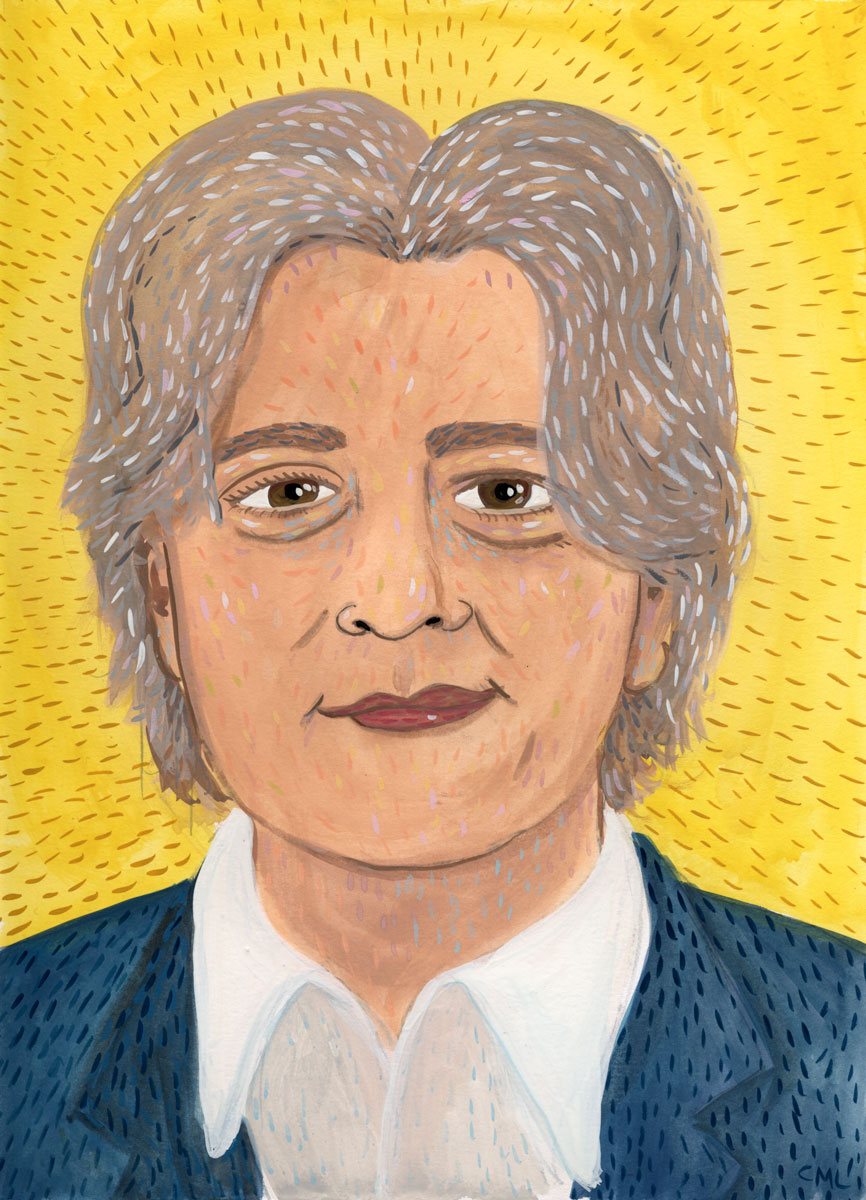
Monday August 7th: Seattle Mystery Authors Tell All
Join local mystery authors Glen Erik Hamilton, Robert Dugoni, Tracy Weber, and Jim Ziskin as they get together to discuss the pleasures and perils of being a mystery author. This evening is scheduled as a group discussion which will then segue into a conversation with the audience — perfect for aspiring authors to get some candid tips.University Book Store, 4326 University Way N.E., 634-3400, www.bookstore.washington.edu. Free. All ages.
Kissing Books: Romance novels are important because people are important
New column! Every month, Olivia Waite pulls back the covers, revealing the very best in new and classic romance. We're extending a hand to you. Won't you take it?
Every first Thursday, this column will showcase four new romance releases and one revered classic or foundational influence from years past. All five books will end with a Happily Ever After, or at least a Happy For Now. (HEA and HFN for short — and now you’re in the know.) Many of these romances will be historicals; many will be LGBTQ; many will have a paranormal or SFF setting. Sometimes we’ll have all those things in one book, because I like all those things and romance is generous and full of gifts. Some books will be sugar-sweet with a single delicate kiss at the end; others will be hot enough that just cracking the cover will set off all the smoke alarms in a three-block radius.
No children will be imperilled, no women assaulted simply for shock value. The dogs will always live.
It’s no exaggeration to say I’ve loved this genre all my life. I stole my first romance novel from my mom’s shelf at the age of five – a kinky space opera romp by Johanna Lindsey. Imagine Jupiter Ascending starring Slave Leia and Conan the Barbarian, and you’ll have the general idea. Mom, appalled, took the book away when I was only halfway through. It took me ten pre-internet years to find another copy and get to that happy ending, but I did it. Romance readers: we’re unstoppable.
And I kept going. I read Julie Garwood in high school, Julia Quinn in college, and Jeannie Lin in grad school. I sold my first romance manuscript a year after graduating, watched my publisher go down in flames five years later, and started self-publishing my backlist in between writing longread analyses of individual books. You know, for fun. I have more romances on my shelves than I can possibly ever read, and more ideas for romance novels than I can ever write.
A mystery is at heart about justice, just as a science fiction story is about envisioning the future and fantasy is about imagining worlds profoundly different than the one we inhabit. Romance is the only genre whose formula is specifically and exclusively about people: the characters are strangers at the beginning and lovers at the end.
Romance novels are important because people are important.
And romance novels are at the center of a lot of people’s lives. Last week, on the farther coast, two thousand romance authors and industry professionals gathered for the Romance Writers of America’s annual national conference. This is not a fan event, but a professional one. Authors bought old friends rounds at the bar and swapped marketing tips with editors and self-publishers. They are mostly women, and along with all the craft and business workshops, they talked about feminism, about race and systemic bias in publishing, about disability and queerness and gender and religion. They have a great deal to say about women’s place in history, in literary culture, in the modern world and in the future.
Romance novels are good fun, and romance novels are big business. It’s a fascinating tangle of passion and money and meaning, and I’m so happy to be here to talk about it.
Recent romances:
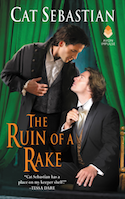
The Ruin of a Rake by Cat Sebastian (Avon Impulse: m/m historical)
Lord Courtenay is appallingly gorgeous, shockingly lewd, and socially outcast. Julian Medlock is upright, prim, and polished within an inch of his life. Each man openly loathes what the other stands for — so it’s a good thing for the romance that they’re both such frauds. This is a story about peeling back layers, about the walls people put up to defend their too-squishy hearts, about taking risks and making mistakes and trying again. Also the best example of sex-scenes-as-character-twist I’ve seen recently. If you like discovering the nurturing side of a Byronic hero, or watching a priggish accountant-type verbally cut someone to ribbons in his lover’s defense, this is your book.
Julian felt about Courtenay’s looks the way radicals thought about money: that it was deeply unfair and problematic for one person to possess such a disproportionate share.
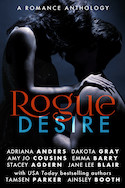
Rogue Desire anthology by Adriana Anders, Dakota Gray, Amy Jo Cousins, Emma Barry, Stacy Agdern, Jane Lee Blair, Ainsley Booth, and Tamsen Parker (self-published: contemporary, various heat levels).
If you’re looking for escapist fluff you won’t find it here — the tone of this resistance-themed anthology is unsubtle, raw, anxious, and fierce by turns. Future historians and critics of romance fiction will make much of the way a certain orange malevolence lurks unnamed in the subtext. At times this book, so viscerally of-the-moment, poked too hard at wounds that are still raw and tender. At other times, though, the sublime gleams through. High points include Jane Lee Blair’s true-hearted pastor hero who cusses with sailor fluency, and Tamsen Parker’s sharp-sweet final story featuring a Jewish heroine whose working title was, no joke, “Hate-Pegging Conservative Josh Lyman.” Anthologies are always useful for testing out new-to-you authors, whether you like your books heavy on the sizzle (Dakota Gray) or populated by policy nerds (Emma Barry, who provided the advance copy. She knows my weaknesses far too well).
There was no excuse not to hold on with both hands when you found love. They’d work the rest out. First, though, they had to get through the sedition.
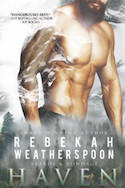
Haven by Rebekah Weatherspoon (self-published: erotic contemporary).
Rebekah Weatherspoon writes some of the best sex scenes around (and now has the Lambda Award to prove it). Her latest is the story of a smart-mouthed Manhattan fashion buyer and a surly, bearded tree of a mountain man: bonded by a shocking tragedy, they try to work out their tangled emotions through dark, beautifully nasty sex. It’s a terrible idea and everyone knows it, including our hero and heroine. This is BDSM romance for the advanced set, by an absolute mistress of the genre — the sex is certainly kinky, but the real danger is in the feelings. This couple’s story is like watching an avalanche in slow-motion: grand, strangely beautiful, and terrifying. I have read more extreme scenarios (Tiffany Reisz, anyone?) but never had my heart in my mouth quite this much. Readers in search of what slinks in the shadowy corners of the heart (and associated organs) will find this memorable and satisfying; those in search of less-intense fare should check out the candy-coated Sugar Baby novella trilogy or the juicy, queer-centric, pulpy fun of the Vampire Sorority Sisters series. (Rebekah created WOCinRomance to promote books written by women of color; I am both a Patreon supporter and a member of the monthly book club.)
“Push back turning you on?” she says as she slips on her bra. “A little bit.” “I mean, I can make today a living hell for you, you just say the word, Master Shep.”
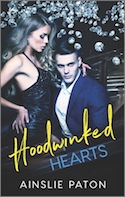
Hoodwinked Hearts by Ainslie Paton (Carina Press: contemporary)
Everything in this heist romance is dialed up to eleven. Imagine a thousand Leverage fanfics piled up high, covered in glitter and set on fire. Hero Cleve Jones is a master burglar and lifelong conman. Heroine Aria Harp is the one person he’s never lied to: his mentor’s rebellious daughter, a shaved-headed, scorpion-tattooed identity thief (!) with a mile-high chip on her shoulder. The story is brief and fiery and rough as a striking match. The prose is hyperbolic and luxurious with occasional sharp shocks of electric truth. At one point there is an extended theft-and-fart-joke scene that does for flatulence what Wodehouse does for hangovers. Ainslie Paton may well be allergic to literary restraint, but let’s not offer to cure her until she’s written a few more books.
Cleve didn’t duck. He said the words Aria warned him not to say, “I love you,” then he stood there like a stone monument to men too smart to know better, so she swung at him and connected with his jaw.
This month’s harlot heroine with a heart of gold
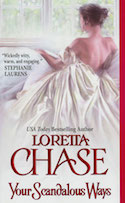
Your Scandalous Ways by Loretta Chase
This was the first Loretta Chase I read and it upended all my thoughts on what heroines could be/do in a Regency romance.
Even if she’s embroiled in some light scandal, the typical Regency heroine is virginal, earnest, and morally above reproach. Francesca Bonnard is none of those things. Not since her titled husband broke her heart, ruined her name, and divorced her by act of Parliament. Now Francesca is a notorious courtesan in Venice, seducing the crowned heads of the Continent and wearing spectacular jewelry and low-cut gowns to the opera five nights a week. Her first POV line is a showstopper: “Penises. Everywhere.”
Due to the scandal of divorce, Francesca is an exile, and she pines for the glitter and social whirl of London lost. It’s as though she’s grieving the loss of the romance-novel story of her first marriage — the ballrooms, the aristocratic suitor, the dazzling courtship. Francesca is an ex-heroine as much as she is an ex-wife.
Nevertheless, at the novel’s end, Francesca is once again wedded, wealthy, titled, and planning parties for the height of the Season. She is, after all, still the heroine of this romance novel. The text never punishes her for her sins or forces her into a humiliating repentance: instead, everything that British society holds against her (manipulating callow young royals, seducing the hot jewel thief next door, refusing to let men boss her around) helps her get to this second, better HEA. She may be a fallen women, but she’s neither broken nor weak.
It’s downright inspiring.
